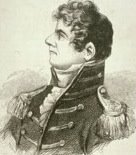Two women, two former Republicans, an independent, and a Hispanic make the top 10.
The following list reflects who's hot and who's not in the search for Barack Obama's vice presidential running mate. It's compiled by CBSNews.com senior political editor Vaughn Ververs and the rest of the CBSNews.com political team and reflects media speculation, buzz, reporting and a lot of guesswork.
 1 Hillary Clinton
1 Hillary ClintonShe won 18 million votes in the Democratic primaries, walloped the presumptive nominee in key states and retains the loyalty of a sizable chunk of the party. Conventional wisdom says this pairing will never happen but until that becomes crystal clear, Clinton has to remain high on the list.
 2 Jim Webb
2 Jim WebbIf being a Vietnam veteran, former Navy Secretary and the very face of the party's anti-war wing isn't enough, he's also from a key battleground state. Early media vetting has not been kind, however, and the Old Dominion isn't large enough to make the election all about Virginia, Virginia, Virginia.
 3 Bill Richardson
3 Bill RichardsonThe best choice if winning New Mexico and courting the Latino vote are paramount concerns. He may also have the best overall resume of anyone Obama will look at -- but his chances might be better if he had not run himself and turned in a puzzling performance.
 4 Kathleen Sebelius
4 Kathleen SebeliusA rising star who suddenly has Republicans wondering what's wrong with Kansas. She's not an insider, has executive experience and bolsters the "change" theme of Obama's campaign. But could it be too much change?
 5 Tom Daschle
5 Tom DaschleAn early and eager supporter for Obama, who appears to have forged a close relationship with the former Majority Leader. A consummate insider helps soothe concerns of inexperience but also brings a lot of insider baggage. And what happened to Obama in South Dakota?
 6 Sam Nunn
6 Sam NunnA growing presence in the speculation because of his national security credentials, the former Georgia senator has veteran experience and moderate credentials. He's well-respected on both sides of the aisle, and is seen as a grown-up, but may be too much of a greybeard for the Obama generation.
 7 Ed Rendell
7 Ed RendellOne of Clinton's staunchest supporters in the primary and a seasoned politician who isn't afraid to jump into a fight. Obama's loss in Pennsylvania has Republicans looking to steal a blue state and Rendell could bring stability. He was careful not to trash Obama in the primaries but there are plenty of things he did say that would be thrown back at him.
 8 Evan Bayh
8 Evan BayhThe Midwestern moderate was supposed to be among the presidential field. Instead he backed Clinton from the get-go. It was a good way to get on her ticket, but just being one of the most popular politicians in Indiana might be enough to get on Obama's.
 9 Tim Kaine
9 Tim KaineNot as appealing a Virginian as Webb, he may be a safer one. The governor has executive experience and isn’t steeped in the ways of Washington and is Catholic to boot. With as many as three prospects from the same state though, the chances narrow.
 10 Michael Bloomberg
10 Michael BloombergThe only name to appear on the list for both presumptive nominees, the mayor appears to be a better fit for Obama. The two have publicly flirted throughout the campaign and this pick could help soothe uneasy Jewish voters unsure about Obama. But a New York City mayor might not be the kind of change voters can believe in.
For full bios and more on the hotlist, go to the
VP bios pages at CBS.













